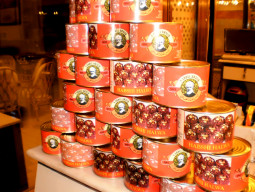
Fatima Group – Pakistan’s sole manufacturer of calcium ammonium nitrate (CAN) – plans to go ahead with a multimillion dollar investment in the United States with or without an incentive package, chairman of the Group’s fertiliser units Arif Habib told The Express Tribune on Tuesday.
The group is part of Midwest Fertilizer Corporation, which seeks to build a $1.75-billion fertiliser plant in Indiana and was banking on financial incentives from the State.
But Indiana Governor Mike Pence said last week that the package had been put on hold because of reports that militants continue to use CAN as improvised explosive devices (IEDs) against US troops in Afghanistan.
“The decision came as a surprise for us. We have taken all the steps to address their concerns and are continuously engaged with them,” said Habib, a well-known Pakistani investor. “We will appeal against the decision with state authorities and try to convince them.”
But, he said, the investment in which Fatima Group has a $225 million equity stake was not entirely dependent on the incentive package. “We feel it’s a good investment opportunity. It is a profitable venture. And more than everything else it’s positive for Pakistan’s image.”

The statement of the governor of Indiana coincided with major symposium organised by the Government of Pakistan in Islamabad on Monday to pacify concerns about use of CAN in IEDs.
Chief of Army Staff General Ashfaq Parvez Kayani himself defended CAN production in Pakistan, saying that it was not the sole reason IEDs were being used in Afghanistan.
He also highlighted the efforts of the Fatima Group to bring down the nitrogen content in CAN, whereas other countries in the region were producing fertiliser with much higher content.

Fatima Group’s fertiliser divisions – Fatima Fertilizer and Pakarab Fertilizer – together produce 600,000 tons of CAN annually, enough to make over 20 million IEDs, according to estimates.
Ammonium nitrate was used in the bomb that blew up a government building in 1995 in Oklahoma City which resulted in 168 fatalities and then in the Bali bombings in 2002.
Chemical composition of CAN is 26% nitrogen, 13% nitrate, 13% ammonical, 10% calcium among other ingredients. CAN is often used as a substitute for ammonium nitrate, a fertiliser, according to Pakarab Fertilizer’s website.
Company officials insist that many other chemicals can as easily be exploited to make IEDs. Under US directives, Fatima Group changed the packaging of its fertiliser bags so it can easily be identified at the border.
“Obviously there are some groups behind all the pressure directed towards Fatima,” said another company official. “They want a share of the market.”
Pakistan accounts for just 0.1% of the world’s total production of ammonium nitrate. A lot of other countries in the region produce high intensity ammonium nitrate like Iran and Uzbekistan.
The company has also changed the colour of CAN grain on US insistence.
National Fertilizer Development Centre (NFDC) Research Officer Ahmad Ali Khan said stopping CAN production can be disastrous for the agriculture sector especially in areas facing water scarcity.
“The easiest way to understand its significance is that where a bag of urea yields an efficiency of 20% to 25%, CAN yields over 50%,” he said. “In any case, CAN makes up miniscule part of the total fertiliser output of the country.”
Pakistan’s annual demand for urea stands at seven million tons while it is producing around 5.5 million. Stopping CAN production will mean spending $2.5 billion on import of fertilisers.
According to reports, just 200 to 300 tons of the 600,000 tons of CAN produced in Pakistan could have actually been used in developing IEDs.
Published in The Express Tribune, May 22nd, 2013.
Like Business on Facebook to stay informed and join in the conversation.
COMMENTS (2)
Comments are moderated and generally will be posted if they are on-topic and not abusive.
For more information, please see our Comments FAQ










































Shameful to the US... Yes!!!
shameful...